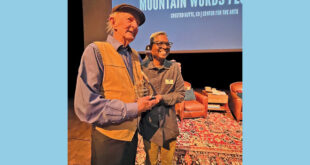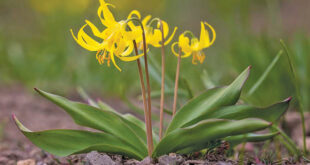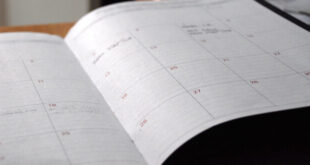One bottle at a time adds up as Crested Butte leads region in diversions
On Thursday mornings in Crested Butte it’s not uncommon to see overflowing recycle bins placed next to near empty garbage carts. Placed in snow banks or set back on the curb waiting for pick up, the sturdy plastic receptacles tell a story about life in the Upper Valley, just as much as what’s placed inside them.
The local “trash” company in town is the nationally recognized company Waste Management. Serving more than 20 million customers throughout North America, Waste Management has become one of the world’s leaders in both solid waste management and recycling, and while big business is not often something that’s lauded in Crested Butte, the presence of Waste Management has helped Buttians become a regional leader in recycling.
Crested Butte has one of the highest diversion rates in southwest Colorado, regularly keeping up to 30 percent of material that might be thrown away from going into the landfill, said Aron Diaz, the Western Colorado Region municipal representative for Waste Management,
“There are a lot of communities in the region that are working very hard to divert 20 percent of their material,” said Diaz. “Both Crested Butte and Mt. Crested Butte are regularly well above that with diversion rates in the 30s. I think it comes down to having a very committed community, and a well established program with a long history.”
According to a Waste Management 2013 annual report for recycling in the area, Crested Butte successfully recycled 203 tons of cardboard/paper, glass, plastic, aluminum and scrap metal—an effort equivalent to saving 2,095 mature trees, 401 barrels of oil and 1,151,010 gallons of fresh water. In addition, all of that material was kept out of landfills.
“One of the most important aspects of recycling is improving the longevity of our landfills,” said Diaz. “When we are able to divert material, we extend the life of the landfills and delay the need to start digging up new land for use as a new landfill.”
Currently municipal solid waste, also known as garbage, from Crested Butte and Mt. Crested Butte is taken to either the Gunnison County Landfill or the Montrose Landfill, where it is buried in the earth and left to decompose—a process than can take anywhere from a few weeks or months to several thousand years.
Recycled material, on the other hand, is collected, then bundled together and taken to recycling hubs in Grand Junction and other municipalities. From these centralized locations it is then sold as a commodity and transferred to different markets, where it is made into new products, or new versions of old products.
With the current economy, Diaz adds, the market for recyclables fluctuates and is not necessarily a huge money maker for Waste Management; however, it’s a program that has benefits that reach much further than a bottom line.
“Recyclable materials are a commodity like any other,” said Diaz. “And we recycle the full complement of commodities.”
So, it seems, do Buttians, but sometimes with greater fervor than others. In 2013, the monthly diversion of recyclable materials varied between a low of 23.55 percent in June and a high of 46.15 percent in December. Some of this variability may have had to do with the holiday—cardboard and paper are some of the easiest materials to place in a recycling bin.
One big thing that could further increase diversion rates in the Upper Valley would be the development of a municipal composting program for food waste and yard debris. According the United States Environmental Protection Agency, more than 34 percent of all municipal solid waste generated nationally comes from food waste, wood scraps and yard debris. These are all materials that can be composted if facilities and infrastructure exists.
“Composting is on the menu,” said Diaz. “It’s a complex issue, but we’re always continuing to look at opportunities. I can say it’s not coming right away, but we’re continuing to head in that direction.”
In the meantime, Diaz urges residents to continue their strong recycling efforts and to look into backyard composting. The less waste that gets taken to the landfill the better off the community will likely be in the long term.
 The Crested Butte News Serving the Gunnison Valley since 1999
The Crested Butte News Serving the Gunnison Valley since 1999




